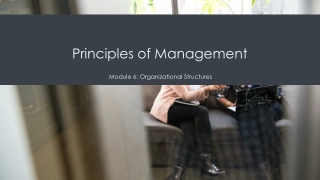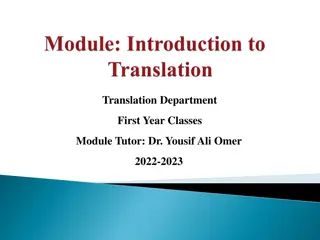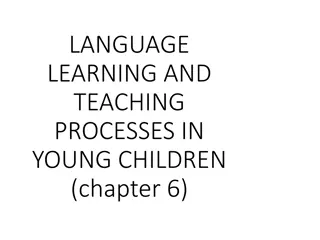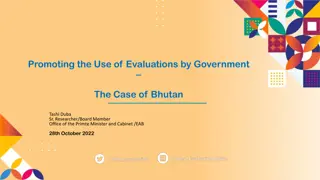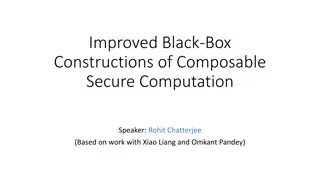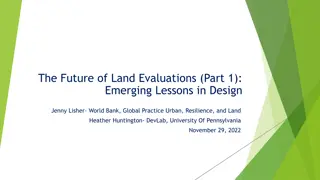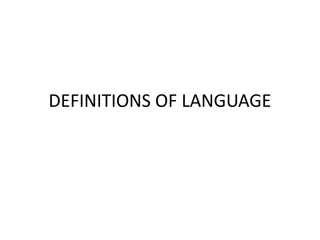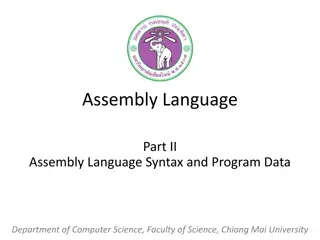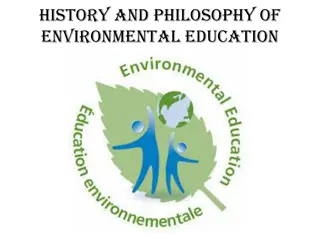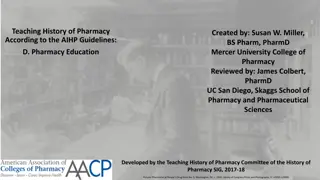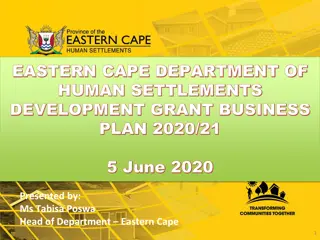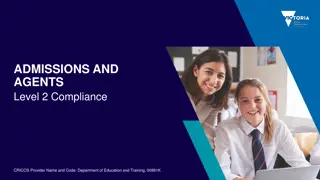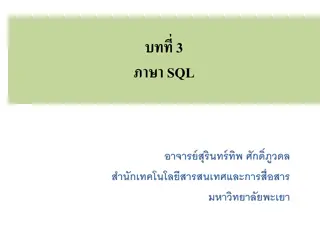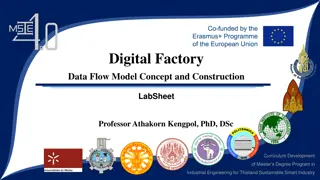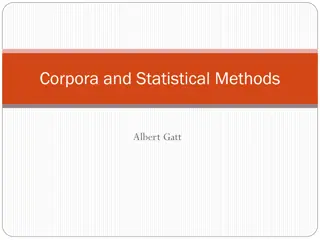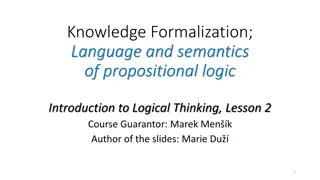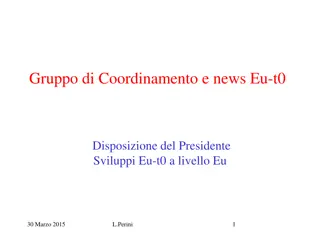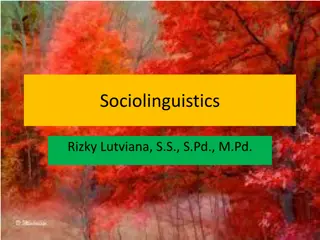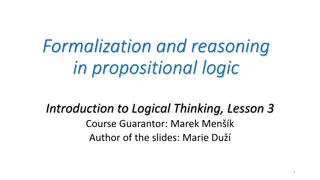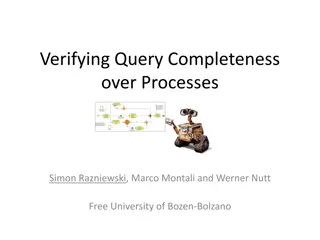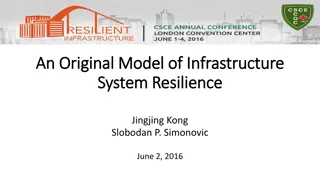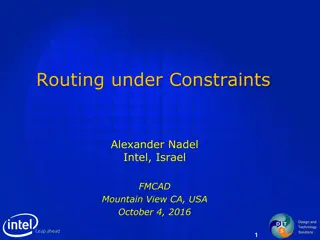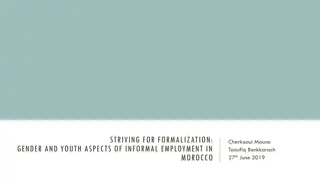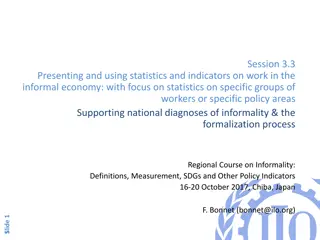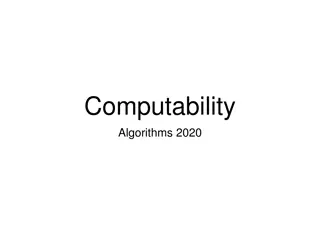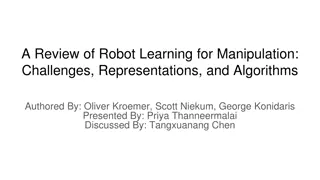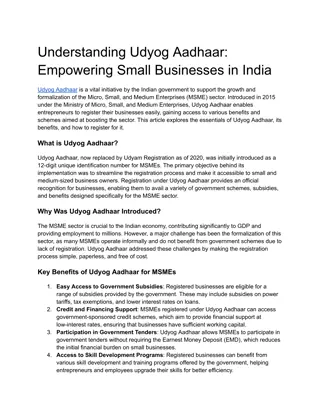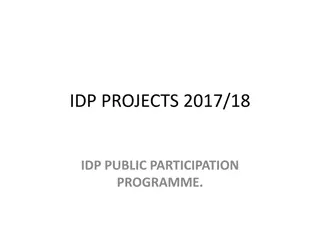Principles of Management
This module explores common organizational structures, the purpose of organization, factors in organizational design, current trends, and the advantages and disadvantages of various structures. It covers specialization, division of labor, hierarchy of authority, centralization, decentralization, for
0 views • 23 slides
Career Opportunities and Challenges in Translation & Interpreting Pedagogy Post-Pandemic
The APTIS 2022 conference explores new avenues in Translation and Interpreting (T&I) pedagogy amidst a changing landscape. Dr. Bego A. Rodriguez highlights emerging roles for T&I graduates. The context reveals a decline in language learning in the UK, impacting the Language Service Industry. The UK'
1 views • 13 slides
Language Study Community – Enhance Your Language Skills
Joining a Language Study Group is a fantastic way to take your language learning to the next level. By leveraging the power of Group Study, you can immerse yourself in the language, enhance your understanding, and build confidence in your speaking abilities. Read full article \/\/explainlearning.com
1 views • 3 slides
Academic Language Demands and Supports in Instructional Planning
Academic Language Demands and Supports are crucial in educational settings to ensure comprehension and usage of language by students. This content discusses embedding language demands in lesson plans, providing language supports, and peer review activities to enhance academic language skills. The fo
6 views • 10 slides
The Significance of Media in Language Learning
Media plays a crucial role in language learning by raising awareness of the ideology behind linguistic structures and providing valuable information on society and culture. Linguists are drawn to media language for research purposes and to understand its impact on language use and attitudes. Media s
12 views • 5 slides
Translation: Key Concepts and Definitions
Translation involves transferring written text from one language to another, while interpreting deals with oral communication. Etymologically, the term "translation" comes from Latin meaning "to carry over." It is a process of replacing an original text with another in a different language. Translat
12 views • 76 slides
Language and Communication in Society: Understanding Interactions
Explore the intricate relationship between language and society through lectures focusing on language in interaction, power dynamics, language contact and change, public space discourse, linguistic landscaping, and more. Delve into the shift from structural linguistics to societal communication, red
6 views • 28 slides
Language Learning and Teaching Processes in Young Children
Development of language in young children is influenced by various factors such as their cultural and linguistic environment, unique characteristics, and interactions with adults. Optimal language development requires language stimulation from the environment. Varied cultural practices impact langua
1 views • 51 slides
Promoting Government Use of Evaluations: The Bhutan Case
Explores the concerted efforts in Bhutan to incorporate evaluations into government decision-making processes, with key milestones, an M&E framework, and directives on evaluation formalization. The case study showcases the importance of monitoring and evaluating initiatives for effective governance
0 views • 9 slides
Enhanced Security in Multiparty Computation
Explore the improved black-box constructions of composable secure computation, focusing on definitions, objectives, and the formalization basics of multiparty computation (MPC). Learn about the motivating security aspects in MPC and the real/ideal paradigm. Discover how MPC security involves compari
1 views • 68 slides
Insights on Land Evaluations: Lessons and Challenges in Design
Exploring emerging lessons and gaps in land evaluations, this content delves into the impacts of land tenure interventions on agriculture, economic outcomes, and environmental sustainability. The discussion highlights key findings, such as the positive effects of formalization on agricultural land b
3 views • 13 slides
Various Definitions of Language Throughout Linguistic History
Different linguists and scholars have offered various definitions of language over time. Sapir (1921) emphasized language as a method of communicating ideas, emotions, and desires through voluntary symbols. Bloch and Trager (1942) focused on the social aspect of language as a system of vocal symbols
2 views • 12 slides
Introduction to Assembly Language Syntax and Program Data
Learn about the syntax of assembly language and how data, variables, and constants are used in programming. Explore the basic instructions and the translation of high-level language into assembly language. Discover the role of an assembler in translating assembly language programs into machine langu
5 views • 36 slides
Enhancing Language Learning Across the Curriculum in B.Ed. 1st Year Course
Language Across the Curriculum (LAC) emphasizes that language learning should occur across all subjects, not just in language classrooms. It highlights the importance of incorporating language development into every learning activity, fostering multilingualism in schools. Language plays a crucial ro
3 views • 34 slides
Evolution of Environmental Education: From Rousseau to International Recognition
Environmental education has roots dating back to the 18th century with scholars like Rousseau and Agassiz emphasizing nature-centric education. The formalization of environmental education began in 1968 with the UNESCO Biosphere Conference, leading to global awareness and action for environmental co
0 views • 33 slides
Evolution of Pharmacy Education in Early U.S. History
Pharmacy education in early U.S. history evolved from an apprenticeship model in the 1700s, transitioning to independent colleges of pharmacy by the early 19th century. Originally considered an art, pharmacy education adapted to incorporate scientific principles and standardized practices, reflectin
0 views • 29 slides
Eastern Cape Department of Human Settlements Development Grant Business Plan 2020/21
The Eastern Cape Department of Human Settlements presents their comprehensive business plan for the year 2020/21, outlining strategic targets, approved grants, and regional breakdowns for the development and upgrading of informal settlements. The plan details housing unit delivery, serviced sites, s
0 views • 18 slides
International Student Admission and Agent Compliance Guidelines
Detailed information on compliance requirements for international student admissions and education agents in Victoria, covering aspects such as CRICOS provider codes, marketing practices, student engagement before enrollment, formalization of enrollment, and guidelines for education agents. The cont
0 views • 10 slides
Comprehensive Overview of SQL Commands and Language Categories
In this detailed guide, you will learn about Structured Query Language (SQL) including its various commands such as Data Definition Language (DDL), Data Manipulation Language (DML), Data Control Language (DCL), and Transaction Control Language (TCL). Explore how SQL is used in Database Management Sy
0 views • 15 slides
Data Flow Diagram: Introduction and Construction in Industrial Engineering
This content explores the concept of Data Flow Diagrams (DFD) in the context of creating a Master's Degree Program in Industrial Engineering for Thailand's smart industry. It discusses the benefits of DFD, techniques for diagram decomposition, and the formalization of DFD rules for consistency check
0 views • 10 slides
Introduction to Corpora and Statistical Methods in Natural Language Processing
This course, CSA5011, delves into statistical natural language processing, covering language formalization, Java as an artificial language, natural language complexity, and levels of analysis in phonetics, morphology, syntax, and semantics.
1 views • 34 slides
Introduction to Formalization and Valid Reasoning in Logic
Understanding the need for formalizing natural language in logic to eliminate ambiguities and vagueness. Exploring valid forms of reasoning and how logical rules help in automating correct arguments. Introducing propositional and predicate logic systems with examples of valid arguments.
0 views • 23 slides
Taxing the Informal Sector in Cameroon: Challenges and Strategies
Exploring the challenges faced by Cameroon's administration in formalizing and taxing the informal sector, along with strategies to enhance revenue collection. The presentation discusses recent successes, limitations, and perspectives on the formalization process, emphasizing the need for a specific
0 views • 11 slides
Speech and Language Developmental Milestones: A Bilingual/Multilingual Perspective
Speech and language developmental milestones are crucial for children, regardless of their home language. These milestones encompass receptive language, expressive language, pragmatics, and articulation and phonology. Understanding how a child hears and talks from birth to one year is essential, as
1 views • 23 slides
Updates on EU-T0 Coordination and News Development - March 2015
The content discusses the progress and initiatives related to EU-T0 coordination and news development, along with the formalization of strategies undertaken in early 2015 for resuming meetings under the EU-T0 framework. It also covers the topics, discussions, and synergies related to EU projects, in
0 views • 15 slides
Challenges and Policies in Formalising Women Workers in India
The Indian labor market faces significant challenges in formalizing women workers, with a noticeable decline in women's employment especially in rural areas. Despite recent policy attempts at formalization, such as the Unorganized Workers Social Security Act 2008 and the Maternity Benefits Act, wome
0 views • 19 slides
Introduction to Language Technologies at Jožef Stefan International Postgraduate School
This module on Knowledge Technologies at Jožef Stefan International Postgraduate School explores various aspects of Language Technologies, including Computational Linguistics, Natural Language Processing, and Human Language Technologies. The course covers computer processing of natural language, ap
0 views • 27 slides
Sociolinguistics: Language Variation and Social Factors
Sociolinguistics delves into the study of language variation influenced by social factors, examining the relationship between language and its social context. It explores various aspects like standard pronunciation, language choice, speech acts, language components, language variety, and factors suc
0 views • 73 slides
Assembly Language Programming for Computing Layers
Assembly language is a low-level programming language that enables direct interaction with a computer's hardware components. This content explores the fundamentals of assembly language, the relationship between human-readable machine language and binary code, an assembly language program for multipl
1 views • 31 slides
Introduction to Propositional Logic: Formalization and Reasoning
Understanding formalization in propositional logic involves replacing atomic propositions with propositional variables and natural language connectives with logical connectives. The process abstracts from internal proposition structure, reducing meaning to True or False. The language allows formaliz
0 views • 18 slides
Verifying Query Completeness over Processes in School Management Systems
Process execution in school management systems often lacks formalization, leading to delays and incomplete database content. This study explores the challenge of verifying query completeness by examining the interaction between the information system and the real world, using a case study of enrolme
0 views • 25 slides
Infrastructure System Resilience: A Model Approach
This document presents an original model of infrastructure system resilience by exploring interdependent networks, cascading failures, and recovery strategies. It discusses formalization, basic dependence patterns, and interdependence of multiple networks for assessing infrastructure resilience. The
0 views • 13 slides
Design Solutions for Routing under Constraints by Alexander Nadel
Alexander Nadel from Intel presents design solutions for routing under constraints, addressing challenges in formalization, scalability, decision strategies, conflict analysis, and violation resolution in industrial router design. The approach involves problem formalization, SAT encoding, net restar
0 views • 42 slides
Language Anxiety in Foreign Language Learning and Teaching
Explore the impact of language anxiety on students and teachers in foreign language learning and teaching contexts through insights from Dr. Christina Gkonou's research. Delve into the theoretical background, implications for language education, and real-life experiences shared at the Essex Language
0 views • 25 slides
Gender Disparities in Informal Employment in Morocco
Striving for formalization of the Moroccan economy reveals significant gender gaps in informal employment. Women are disproportionately affected, with lower employment rates and lack of job security compared to men. Informal sector prevalence remains high, impacting access to healthcare and pension
0 views • 13 slides
National Diagnostics of Informality in the Informal Economy
This session focuses on presenting and using statistics and indicators on work in the informal economy, with a specific emphasis on specific groups of workers and policy areas. It covers aspects such as national diagnoses of informality, the formalization process, assessing drivers of informality, a
0 views • 34 slides
Hilbert's Program and Turing Machines in Mathematics
Delve into Hilbert's Program and its impact on the understanding of mathematical truth, from attempts to resolve paradoxes to the concept of formalization of effective procedures. Understand the significance of Godel's incompleteness result in the context of algorithmic decision-making. Explore the
0 views • 40 slides
Robot Learning for Manipulation: Challenges and Opportunities
A review of robot learning for manipulation presents key motivations, concepts, and formalization of learning tasks. It covers various aspects such as manipulations as physical systems, task decompositions, object-centric generalization, and learning object and environment representations.
0 views • 19 slides
Understanding Udyog Aadhaar_ Empowering Small Businesses in India
Udyog Aadhaar is a vital initiative by the Indian government to support the growth and formalization of the Micro, Small, and Medium Enterprises (MSME) sector. Introduced in 2015 under the Ministry of Micro, Small, and Medium Enterprises, Udyog Aadha
0 views • 3 slides
Municipal Projects Budget Summary 2017-2018
This data presents the budget allocation for various projects in 2017-2018, covering public participation programs, mayoral office initiatives, road projects, electrification projects, formalization of settlements, sports precinct development, and municipal infrastructure improvements in certain are
0 views • 26 slides
